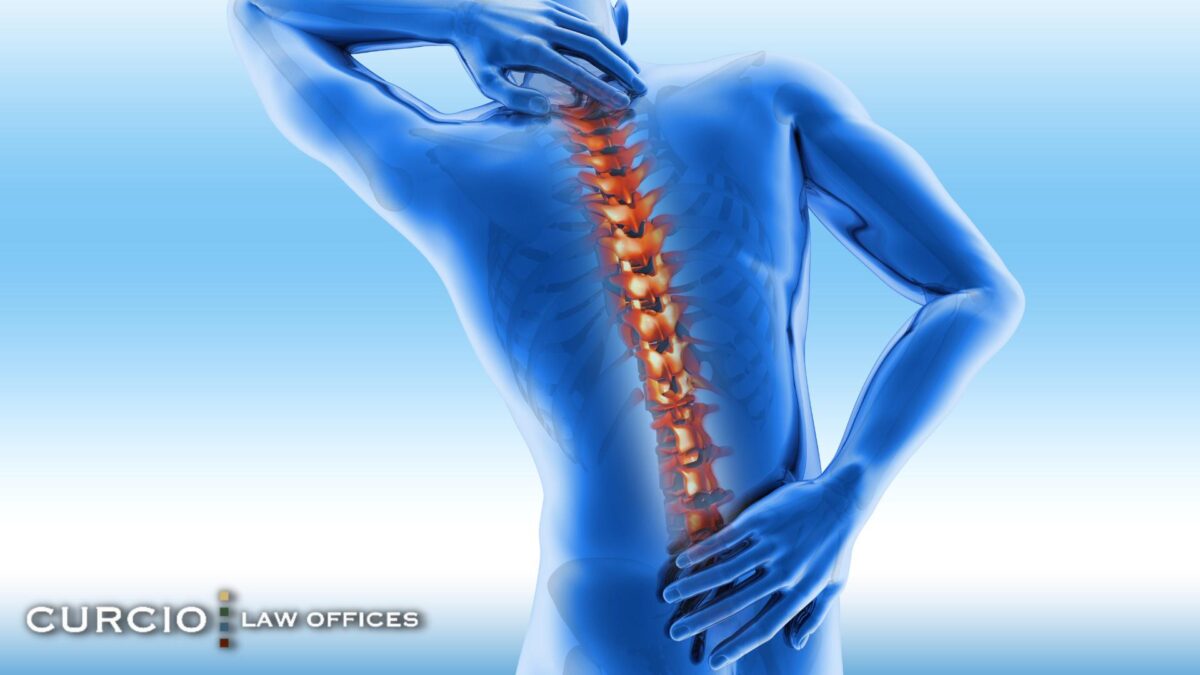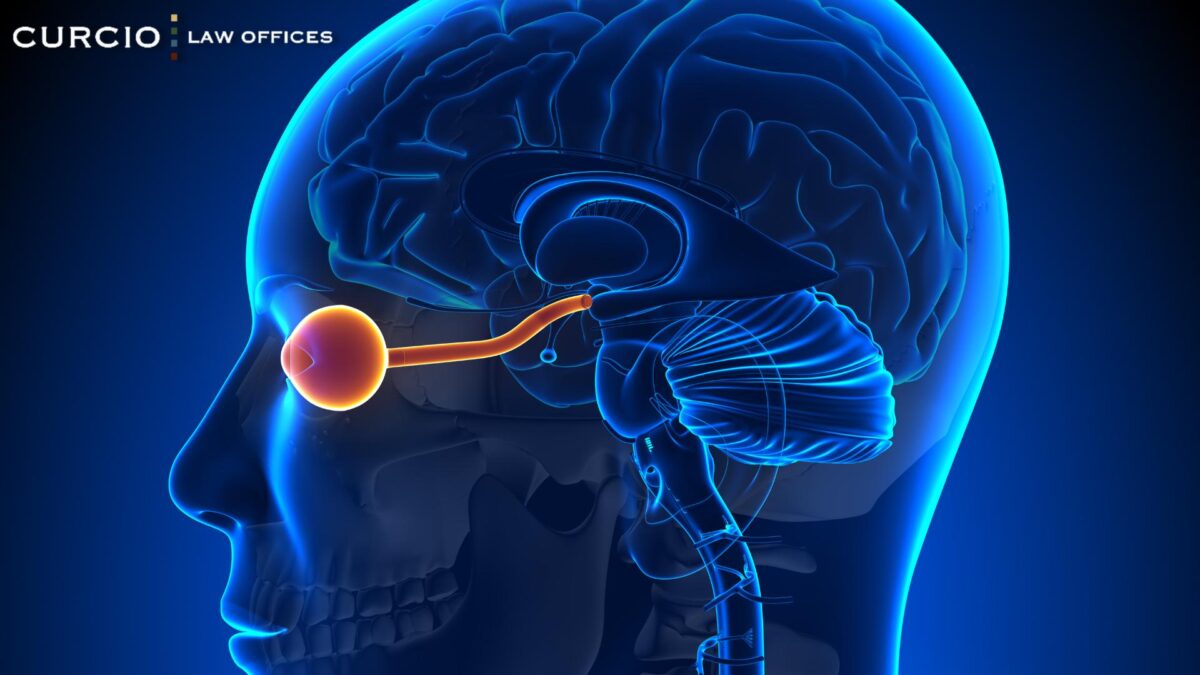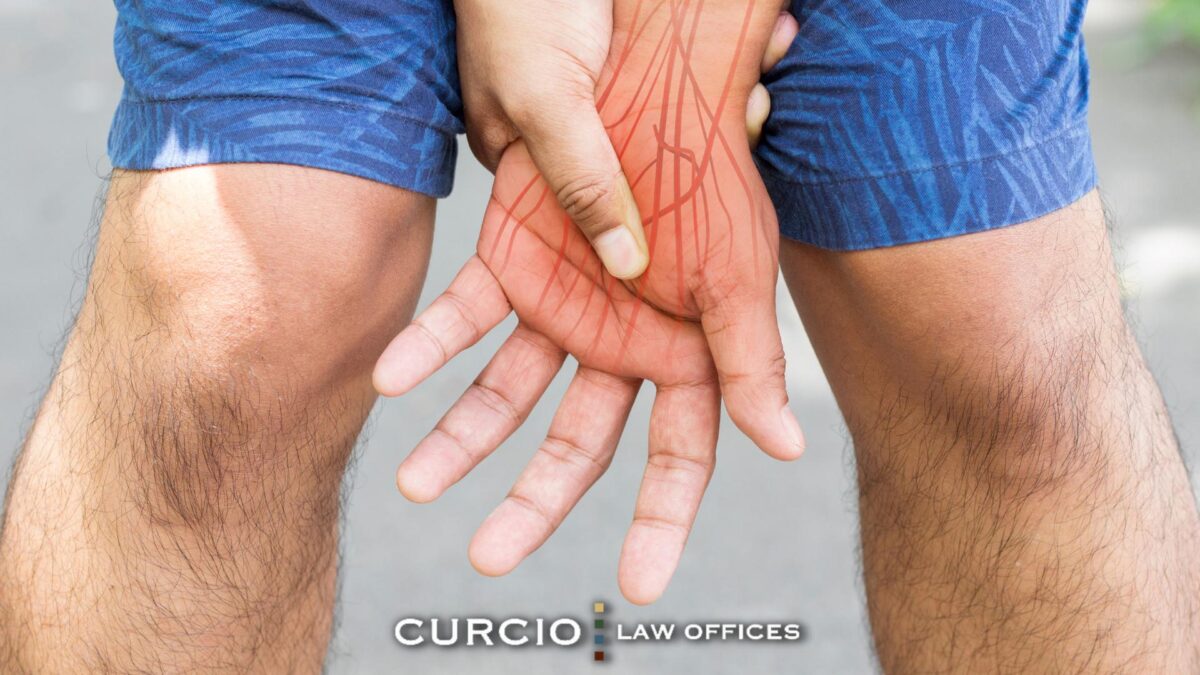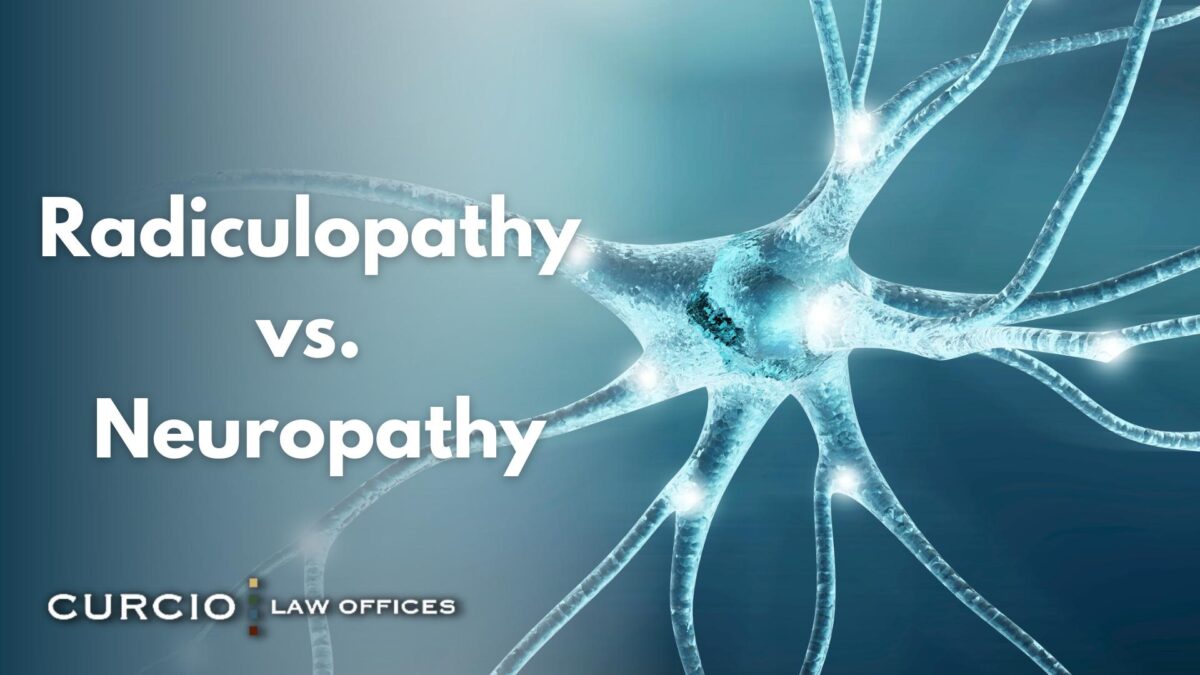When you’ve been involved in a traumatic accident that caused a spinal injury or brain damage, you could suffer from life-altering conditions that affect your daily life. The spine and brain are a vast network of nerves controlling our body’s mobility and other functions. When we’ve sustained injuries to either, the consequences can be debilitating. Not only do you have to learn to live with your injury, but you also have to deal with lost wages from missing work, medical bills, and more.
Since the brain and spine are made up of many different nerves, the consequences of your brain and spinal injury could vary. Radiculopathy and neuropathy are two of several nervous system disorders that can be caused by a traumatic accident or injury. While radiculopathy and neuropathy share some similarities, the causes of nerve damage and the areas they affect are different. To understand how radiculopathy and neuropathy differ, the Chicago back injury attorneys at Curcio & Casciato will explain more below.
What is Radiculopathy?
The human body’s spine is made up of small bones called vertebrae, which surround the spinal cord. Nerve roots, the parts of a nerve that extend from the central nervous system, are either cranial or spinal. When a spinal nerve root becomes damaged or pinched, radiculopathy occurs.
A person suffering from radiculopathy may experience numbness or pain around a particular area of the spine with the pinched nerve.

Types of Radiculopathy
Your medical provider will diagnose your radiculopathy in one of three ways, depending on the location of the pinched nerve and the symptoms. The three classifications of radiculopathy are cervical, thoracic, and lumbar. Each type can affect people differently and result in different treatments. Below, we explain the differences between the three different radiculopathy classifications.
- Cervical Radiculopathy is caused by a compressed nerve root in the neck, also called the cervical spine. Someone with cervical radiculopathy may experience numbness, tingling, and pain symptoms in their hands and arms since that is the area the cervical spine controls.
- Thoracic Radiculopathy: The compressed nerve root is located in the upper back area, also known as the thoracic region of the spine. A person with thoracic radiculopathy will experience symptoms in and around the chest, and breathing can also be painful. This type of radiculopathy is the most uncommon.
- Lumbar Radiculopathy: When the nerve roots are pinched or damaged in the lower back area, it’s lumbar radiculopathy. This is the most common type of radiculopathy.
Is Sciatica a Type of Radiculopathy?
Yes, sciatica is a type of radiculopathy. When the sciatic nerve is pinched, the pain occurs from the pelvic area and all the way down the back of your leg. The sciatic nerve is the longest in the human body. It’s often referenced in conjunction with lumbar radiculopathy since the sciatic nerve also spreads down the lower back.
Those with sciatica may experience the following symptoms:
- Buttock pain, numbness, and tingling
- Numbness, pain, and tingling along the back of the thigh.
Is Radiculopathy Considered Nerve Damage?
Radiculopathy is considered a type of nerve damage since it is caused by damaged or pinched nerves. This type of nerve damage is usually not permanent and will usually go away with medical treatment.
Radiculopathy Symptoms
As mentioned earlier, the area in which a person with radiculopathy will experience their symptoms is determined by the area of the spine with the affected nerves. Although the areas may differ, the symptoms are generally the same. The most common symptoms of radiculopathy include:
- Muscle weakness
- Pain surrounding the affected nerve root
- Numbness and tingling
- Middle and lower back pain
- Neck pain
- Leg pain

Common Causes of Radiculopathy
The most common causes of radiculopathy are as follows:
- Bone Spurs and Herniated Discs most commonly lead to radiculopathy since both can put pressure on nearby nerves along the spinal column.
- Chiropractic malpractice can cause radiculopathy if the neck, head, or spine is popped incorrectly. If you visited a chiropractor and suffered from pain caused by a pinched nerve, you may have grounds for a medical malpractice suit. To learn more, contact a Chicago chiropractic malpractice attorney today.
- Major accidents like slip and fall accidents or car accidents can lead to a damaged spinal nerve root. (Our Chicago premises liability attorney or Chicago car accident attorney may be able to help you secure compensation.)
- Ossification of the spinal ligaments occurs when the spinal ligaments have thickened. When the spinal ligaments thicken, it leaves less space around the nerves, which can lead to pinched nerve roots.
Other causes of radiculopathy are spinal stenosis, cancerous growths, and spinal infections, but they are less common.
Treatments for Radiculopathy
Radiculopathy typically requires little to no medical treatment. However, your doctor may prescribe the following treatments for radiculopathy nerve damage:
- Nonsteroidal Anti-Inflammatory Drugs (NSAIDs) like ibuprofen or aspirin for pain.
- Corticosteroids can be taken for inflammation and pain.
- Ice or Heat Therapy can help reduce pain.
- Improving Posture: We may not realize it, but all the time we spend hunched over our desks can cause severe pain stemming from a compressed nerve root. Standing desks are a great alternative for those experiencing radicular pain from sitting hunched over. If you don’t want to add a standing desk to your office, being aware of your position and sitting up can also help reduce pain.
- Physical Therapy/Yoga can help relieve pressure from damaged spinal nerve roots.
What is Neuropathy?
Neuropathy is a type of nervous system disorder that occurs when there is damage to the nerves outside of the brain and spinal cord, called the peripheral nerves. Neuropathy is considered peripheral nervous system dysfunction.
The human body’s central nervous system is made of the brain and spinal cord. When you’re involved in a major accident that causes a spinal cord injury or traumatic brain injury, you’ve suffered central nervous system damage. The peripheral nervous system consists of the nerves outside of the spinal cord and brain. The peripheral nerves are the nerves that send signals to your brain so that you can feel things and move around.
The autonomic nervous system (ANS) and the somatic nervous system (SNS) make up the peripheral nervous system. There are three different types of peripheral nerves that the ANS and SNS consist of:
- Autonomic nerves are the nerves controlling unconscious functions like heart rate, digestion, and more.
- Sensory nerves are the nerves that allow you to feel heat, pain, and other sensations.
- Motor nerves control the movement in your legs, toes, fingers, arms, and other areas.
When one of the above peripheral nerves becomes damaged, peripheral neuropathy occurs. This type of nerve damage symptom is similar to the radiculopathy we covered above.

Common Types of Neuropathy
As you can see, the peripheral nerves control a wide range of bodily functions, so there are many types of peripheral neuropathy. However, the most common types of neuropathy are:
- Autonomic Neuropathy occurs when the autonomic nerves have been damaged. You may experience heart, urinary, or gastrointestinal issues if you suffer from autonomic nerve neuropathy.
- Cranial Neuropathy can happen when one of the twelve cranial nerves extending from the brain becomes damaged. The optic nerve is one of the twelve cranial nerves; when it is damaged, it’s known as optic neuropathy.
- Diabetic Neuropathy can occur when multiple peripheral nerves are damaged from diabetes.
- Focal Neuropathy is when only one nerve has been damaged. People often suffer from focal neuropathy in the head, torso, leg, or hand.
- Motor Neuropathy happens when one or more motor nerves have sustained damage. A person with damaged motor nerves may experience problems with mobility.
Multiple damaged peripheral nerves can cause a person to experience combination neuropathies. For example, a person can sustain damage to both the motor nerves and sensory nerves leading to sensory-motor neuropathy.

Symptoms of Neuropathy
Neuropathy symptoms will vary based on the peripheral nerve that has been affected. However, the most common symptoms of neuropathy are:
- Abnormal heart rate
- Muscle weakness
- Numbness, pins and needles, and tingling in different areas of the body
- Muscle twitching or spasms
- Emotional disturbances
- Difficulty moving different parts of the body
- Unintentional weight loss
- Burning, sharp, or throbbing pain
- Difficulty sleeping
- Loss of coordination
- Lack of muscle control
- Deteriorating muscle tone
- Inability to control bladder or bowels
- Issues with blood pressure
- Sexual dysfunction
- Complications related to your blood pressure
- Trouble eating and swallowing
- Dizziness and lightheadedness
- Excessive sweating or not sweating at all
- Abnormalities with sensing pressure, pain, temperature, etc.
Common Causes of Neuropathy
The most common causes of peripheral neuropathy are:
- Sports accidents
- Slip and fall accidents.
- Motor vehicle accidents – car accidents, truck accidents, motorcycle accidents, bicycle accidents, and pedestrian accidents
- Long-term alcohol abuse
- Medical malpractice
- Diabetes
- Benign or cancerous tumors
- Autoimmune disorders
- Vascular disorders
- Exposure to mercury or lead over a long period of time
- Infections like HIV, syphilis, chickenpox, herpes, shingles, etc.
Treatments for Neuropathy
Your doctor’s treatment for your neuropathy will be determined by the type of peripheral neuropathy you’ve been diagnosed with. The most common treatments are:
- Pain relievers
- TENS – Transcutaneous Electrical Nerve Stimulation
- Physical therapy to strengthen muscles and improve muscle tone and control
- Surgical procedures to remove any tumors that have compressed nerves or to correct entrapment neuropathy, like carpal tunnel syndrome
- Wheelchairs, canes, braces, specially designed shoes, and other medical aids help increase mobility.

Radiculopathy vs. Neuropathy: What’s the Main Difference?
So we’ve discussed everything from causes to symptoms and treatments, but radiculopathy vs. neuropathy – what’s the difference?
Radiculopathy and peripheral neuropathy overlap some, but the similarities primarily lie in the symptoms that they cause.
The most significant difference is that neuropathy is peripheral nervous system dysfunction that is caused by damage to the peripheral nerves, either from health conditions, a traumatic accident, etc. Meanwhile, radiculopathy is caused by nerve root damage along the spinal column.
Call Chicago Personal Injury Lawyers at Curcio & Casciato Today
If you’ve suffered a spinal injury or other traumatic brain injury that caused radiculopathy or neuropathy, you could pursue financial compensation against the negligent party. Discuss your case with an experienced Chicago spinal cord injury attorney at Curcio & Casciato by calling 312-321-1111 to schedule a free consultation.



